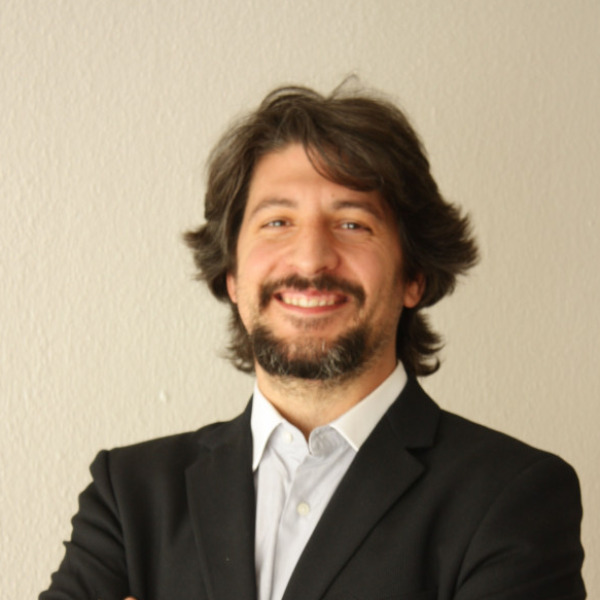Antivirals, an arms race in COVID-19 era
The compounds used to fight viral infections are called antivirals, just as the antibiotics are used against bacterial infections. Antivirals can be either unspecific or specific; the unspecific ones interact with components of the replication machinery that are shared among different virus, while specific antivirals target unique elements involved in the replication of a specific virus. When an antiviral compound is effective, the virus is unable to increase its number of viral particles and, eventually, it is detected by the immune system, which eliminates it.
The development of an antiviral compound may follow different strategies. The most desirable strategy is to attack the virus as soon as possible during its replication cycle, even before it reaches the host cells. In this case, the drug will compete the binding of the virus with the membrane proteins of the cell, by mimicking either the cell receptor or the viral binding protein. The drawback of these antivirals relies on the production costs. Sometimes more affordable and easier to produce strategies are preferred to tackle the viral infection, even if this means targeting it at a later stage of the replication cycle. For instance, some antiviral compounds can act as antibodies against a specific virus, tagging them for their recognition by the immune system. Nevertheless, the most promising antiviral compounds that are being developed in the fight against COVID-19 are based on the interference of the viral DNA or RNA replication processes with specific nucleosides that interrupt the generation of new viral copies.
In parallel with the development of the vaccine against COVID-19, antivirals that inhibit the multiplication of the virus once it has already infected the host are being developed.
At the end of May, Russia registered the first antiviral compound against COVID-19, Afivavir. This drug is specific against this coronavirus and has been approved by the Russian health authorities in record time. Of course, this has not precluded it from undergoing the compulsory tests of health safety, which have revealed, for instance, that this drug must not be prescribed to women in case of pregnancy.
Furthermore, Hong Kong is testing an antiviral cocktail of three well-known compounds, which are showing good results to control the infection. This cocktail contains beta-1B interferon, lopinavir-ritonavir and rivavirin, although according to the ongoing studies, it reaches its maximum efficacy when administered during the first 15 days after infection, which can be sometimes overlooked as the patient might not show symptoms during this period. These antivirals, which are also used against HIV, have been one of the proposals from the WHO in its study Solidary Trial to search for known drugs that could be effective against SARS-CoV-2 .
Finally, Remdesivir is the candidate antiviral compound of Gilead Sciences (USA) within the Solidary Trial program. The FDA has issued an Emergency Use Authorisation for the use of Remdesivir against SARS-CoV-2 after the analysis of the clinical trials carried out by the National Institutes of Health (NIH) monitoring the recovering time of patients subjected to different concentrations of Remdesivir (N Engl J Med, 2020). The study showed that its use improves prognosis in patients with moderate conditions. Nevertheless, the authors themselves called for caution since their assay did not include control group, it was performed on a limited number of patients and the monitoring time lasted for only 10 days.
This broad-spectrum antiviral was developed against Ebola with dubious results but showed some effectiveness against SARS-CoV and MERS-CoV in animal models (a study with rhesus macaque published in PNAS, 2020). These studies showed the need to apply the treatment shortly after infection to show its effectiveness.
The controversy with Remdesivir arose when a Chinese research team published another study that concluded that although the patients who were given the antiviral within 10 days of the onset of symptoms improved earlier than those in the control group, the differences were not significant (Yeming Wang, The Lancet, 2020). Furthermore, the treatment did not appear to reduce the viral load in the airways or in the upper respiratory tract or sputum, which was observed in animal models. Finally, 18 of the 158 patients treated with the antiviral had to withdraw from the trial due to serious side effects. Unfortunately, the authors had to cancel the trial before they had enough patients for the study, in the absence of candidates, to have the robustness they wanted. The authors advise to carry out a larger study to verify if these insignificant variations are maintained or if the antiviral demonstrates its effectiveness in some other state of infection. However, the lack of a larger sample has been used by Americans to reject the validity of the study.
The development and approval of drugs with proven effectiveness and safety against COVID-19 is a priority that will take time. The industry has its security measures for a reason and there is no need to rush it. Meanwhile, health authorities in different countries try to find solutions to the pandemic as quickly as possible. And some of them are starting to buy or nationalise the companies that could be essential in the process in order to ensure the supply of medicines.
Bibliography:
Compassionate Use of Remdesivir for Patients with Severe Covid-19. J. Grein N Engl J Med, 382:2327-2336 ; 2020.
Prophylactic and therapeutic remdesivir (GS-5734) treatment in the rhesus macaque model of MERS-CoV infection. E. de Wit et al. PNAS; 117 (12) 6771-6776; 2020.
Remdesivir in adults with severe COVID-19: a randomised, double-blind, placebo-controlled, multicentre
- Like (3)
- Reply
-
Share
About Us · User Accounts and Benefits · Privacy Policy · Management Center · FAQs
© 2025 MolecularCloud




